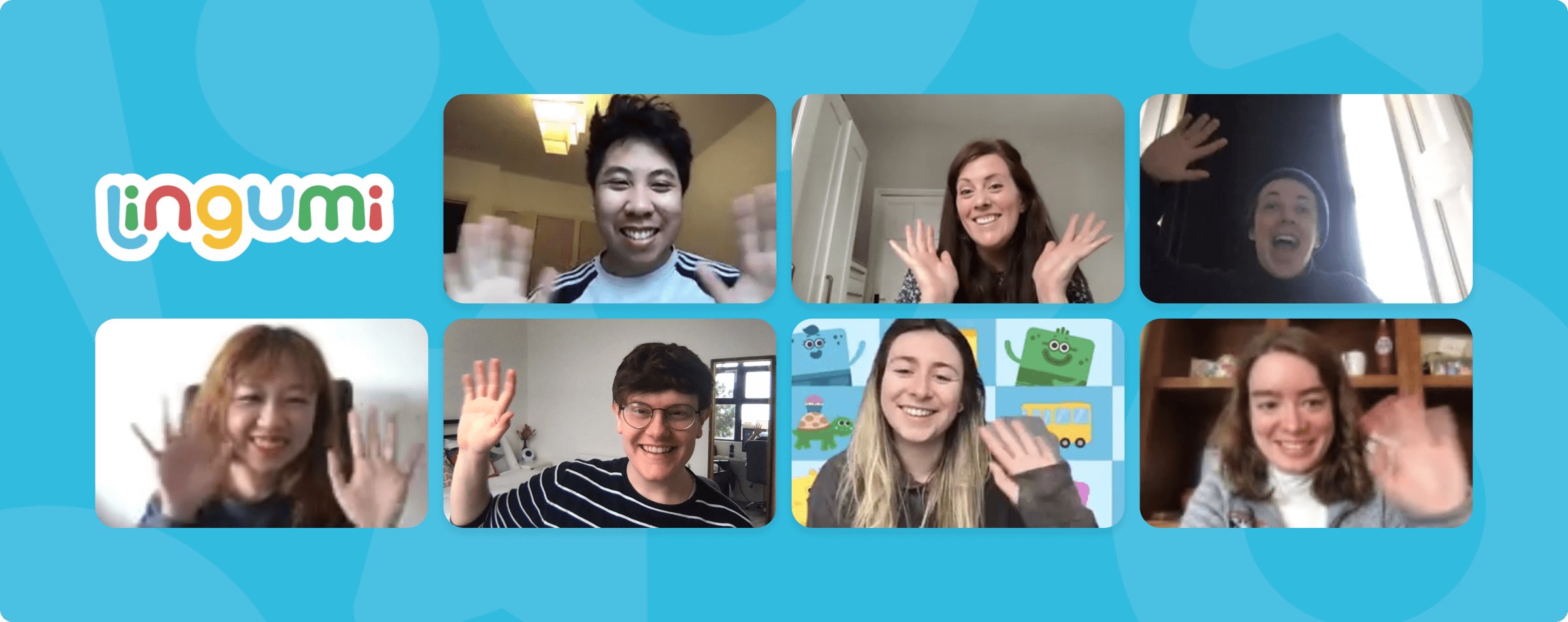Things I learned in my first six months as a Design Manager
Some learnings and advice from my first six months leading the design team at Lingumi, a fast scaling start-up. Originally posted on the 'Inside Lingumi' Medium.
The wicked-scary question
Pre-Lingumi, I was working for another company in the education space, where I was fortunate to have two amazing design leads and a tech lead to learn from. Through them, I got to see first-hand all the best and worst parts of management.
However, all things must end, and I was fortunate enough to find Lingumi hiring for exactly the type of role I was aiming for – a senior product designer position with the opportunity to manage the growing design team.
Inspired by Adit (co-founder and then COO)’s extremely energetic introduction to Lingumi and its mission, I was super-excited to get started. Then he asked something which made me question everything – did I want to take the manager route and eventually move into the ‘big picture’ position, or did I want to continue being an IC?
I’m sure most people will hit this point in their career and have to really take a step back to evaluate what’s right for them. Did I want to manage the team, take care of their needs, figure out what ‘good’ looks like, and help them define their careers, or continue down the IC route into a senior position like DesignOps or Principle Designer? That was a real toughie, and one I’m sure a lot of us will have to really reflect on when it’s presented. However, like everything else in your career so far…
#1 – It’s all a big experiment
Even with all the support from your peers, your colleagues and your friends, the next big move is invariably very daunting. You’re not going to know everything straight away, and at times it’ll feel like you’ve jumped in at the deep end. Take a deep breath – that’s fine.
The chances are, if you’re reading this you’re in the same sort of industry or space as myself. A huge benefit of coming from product-focussed background means we’re already pretty comfortable with treating everything we do at work as an experiment. In a lot of ways, this is no different. Reframe it as a design problem, and your first step is a lot clearer. Do some research!
- Arm yourself with books, articles and videos. Thankfully, you’re not the first manager who’s struggled with this change. There’s tons of great help out there. Personally, I recommend The Manager’s Handbook by Clearbit – this could not have come along at a better time for me – and some of Aastha Gaur’s writings on management for an extremely honest take on things.
- Pick the brains of other managers. You’re gonna need insight into how senior management sets their goals, company-wide OKRs, and everything business-ey to make sure that you’re communicating it to your reports, and to make sure that you’re supporting them in the right places. It’s also super important to hear the thoughts and problems that other folks around the company might be facing, and how you can navigate similar issues if they arise. For example, at Lingumi we have a private managers’ Slack channel where we can voice concerns, get feedback and ask hard questions in a safe space.
- Figure out what people are doing away from your company. Those great managers you’ve had before? Ask them for mentorship now that you’re not working together. They inspired you and got you to where you are, so keep that bond strong. A lot of problems managers face aren’t unique, so it’s a good way to hear about the benefits and shortcomings of different approaches before trying them yourself.
- Talk to your team! A new manager is pretty fortunate at Lingumi – everyone presents a little about themselves when they join, including things like their own shortcomings and superpowers – and this is put into the team wiki alongside details like how they prefer feedback. However, this isn’t the same as hearing from them personally. Take the time, especially in the first few weeks when the pressure on everyone is lower, to really get to know each other and lower the barrier for good communication.
The super-duper lovely Lingumi Design Team!
#2 – Stop talking so much 
I’m a huge talker. I love a good chinwag. I want the conversation to always run at a thousand miles an hour so that we can all brain dump and get silly with it.
Turns out this is not the best way to manage. Your team, and indeed everyone, wants to feel heard. Being heard doesn’t always mean the other party takes what’s been said and riffs on it for 10 minutes.
A good exercise to practice for this is the same kind of thing you’d do in user interviews: stop waiting for your chance to speak. Just sit back and listen, and really dig deep into the things that stand out. Often, people will use that space to start to naturally draw their own conclusions or to say the things they’re really thinking. That gives you both a better idea of the problem, and lets you pick the right moments to advise.
On the flip-side, try to make sure all team conversations encourage everyone to be heard.
#3 – Be honest, but don’t be reckless
It’s crucial to remember now that you’re going to be the person the team looks to for help navigating their career, dealing with any issues that might arise, and general team leadership.
One off-hand comment can crush the psychological safety you’ve spent months cultivating. Anything you say has the potential to be instrumental in setting the team’s morale.
For the first few weeks and months, you’re not going to know your team. Sure, you’ll get to know them, but you won’t really know them. Don’t be afraid to be yourself, but make sure you work out early on where the line is with each team member and the team as a whole. Reflect on the decisions you’ve made that week, and try to abstract yourself from them and the way you delivered them. Would you be comfortable if your team lead had done those things? How can you get better at that?
#4 – Get comfortable with saying no 
Like, super comfortable. It should be the de facto response. You should be fighting yourself to not immediately reply with it.
Alright, maybe it’s not that deep. But after reading ‘Never Split the Difference’, one of our full-stack developers Rosie ’diagnosed’ me as ‘The Accommodator’ type of personality. That’s basically spot on – I will always say yes, and do everything to make the people around me happy. Unfortunately, that doesn’t lend itself to good managing.
A big part of your job is now making sure that there’s a buffer between your discipline and the rest of their team. They need space to focus on their own work, and you need to make sure all requests coming in are both essential and appropriately triaged.

#5 – Get out of your own head 
For the first 6 weeks or so, I invariably mentioned how I was scared of being perceived the wrong way as a manager in every 1:1 with Rich (our Head of Product). I thought about every comment, decision and even expression I’d made and wondered if David Brent would have done the same.
The only advice I can lend here is to chill out. Take a breath. Be yourself. You’re gonna be fine.


